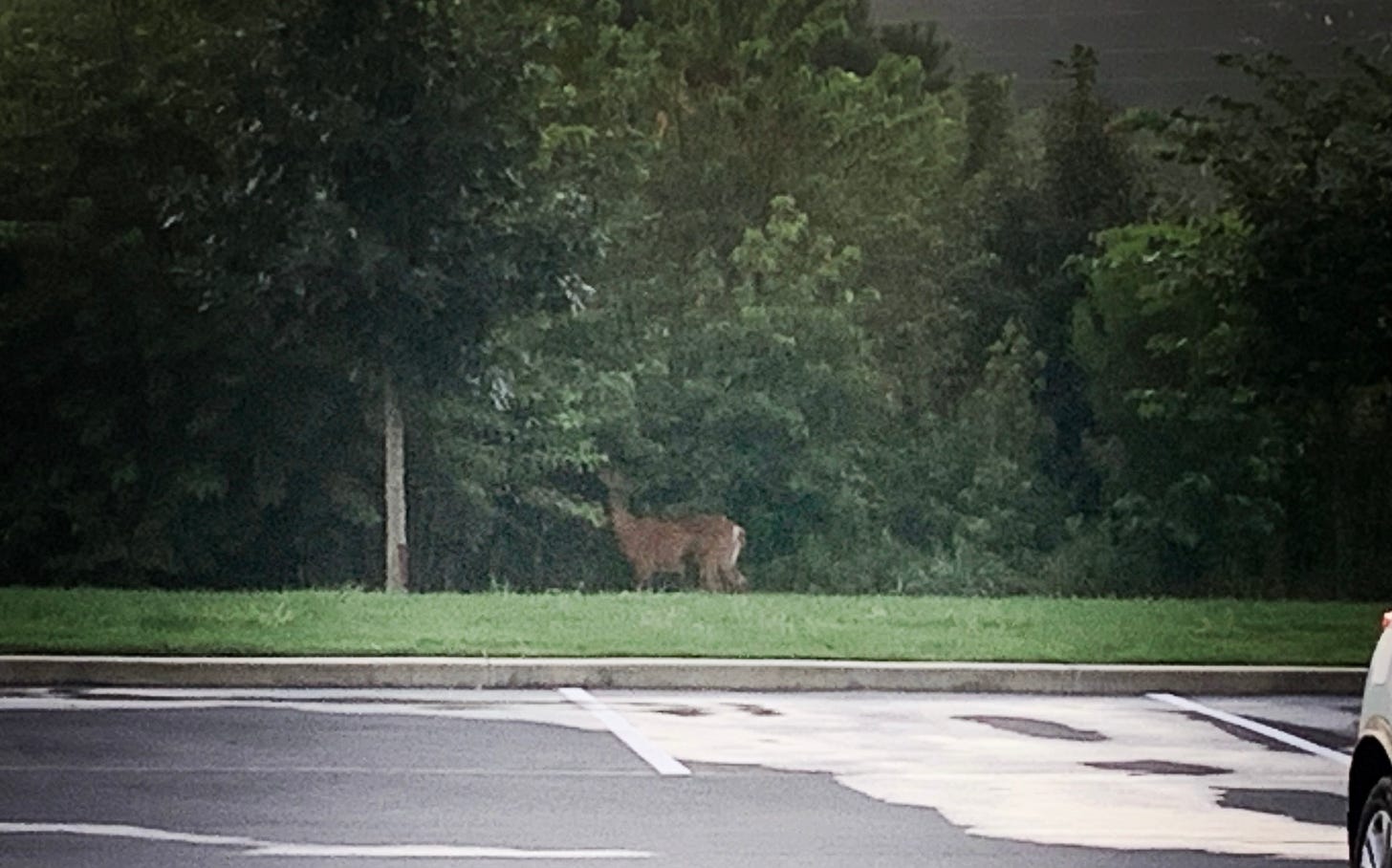Thoreau's Infinite Expectation of the Dawn
Finding beauty, presence, and quiet hope in the stillness of morning and the wisdom of living deliberately.
The mornings have been unusually cool these past few days, and I’ve been taking full advantage of them. Instead of hiding inside with the air conditioning, I bring my coffee out to the patio and watch the sun rise. The stillness is a gift.
A car might pass down Bedford Street now and then, but mostly it’s the birds who keep me company—along with the occasional rooster, crowing as if to add another note to the divine symphony. My dogs are beside me on their chairs, and a candle flickers on the table to remind me that Christ is always present.
Watch and listen…
Living Deliberately
This is what Thoreau was getting at when he aspired to “live deliberately” in the woods. Even in his time, he saw how easily people rushed past the beauty of the moment. Long before “mindfulness” was a marketing buzzword, he understood that life’s depth was found in presence.
Living deliberately means choosing your actions, not letting habit or autopilot dictate your days. Without questioning our choices, we can wake up at midlife asking, How did I get here—and why am I not happy? Our minds so often rush ahead to anticipated workdays or challenging encounters, or back to regrets from the past, that we forget we are shaping our future in this moment.
Beauty in the Present—Even in Suffering
Living deliberately also means facing the moment as it is, whether pleasant or painful. We may not understand the suffering we’re experiencing, but if we distract ourselves from it or deny it, we risk missing the beauty that can coexist with pain.
My mother told me yesterday she felt good, which I suspect was thanks to the candy I sent her. She admitted that Saturdays were boring. I encouraged her to go outside and sit in the sunshine—15 minutes of light each day can do wonders for the mind. Even in her depression and dementia, there are small gifts to savor if you look for it.
Hope and the Present Moment
I have long valued the wisdom of Buddhist teachers and the tradition’s deep commitment to presence. Yet one thing Buddhism often sets aside is hope, because hope pulls us into the future. Hope assumes that a better moment lies ahead, distracting from the one we are in now.
[Just as I was pondering this, a deer stepped into view across from the parking lot, nibbling on young trees. I hoped my dogs wouldn’t scare it off.]
And that word—hope—made me think of Thoreau’s slightly different take.
The Infinite Expectation of the Dawn
Thoreau didn’t call it hope. He calls it “the infinite expectation of the dawn.” When I encountered these words through my Lectio Divina practice, they resonated deeply. For Thoreau, hope was not an escape from the present but the energy that brings each new day into being.
The infinite expectation of the dawn is the assurance that every day—every moment—offers the chance to begin again. It’s a hope woven seamlessly with the Buddhist spirit of presence: we live deliberately, aware of what nourishes us and what doesn’t, and in doing so, we are never missing out on life’s true essence.
We may miss the latest gossip or social media trend, but we are fully present for the deeper currents of life, available here and now.

Waiting for the Dawn Together
Can you hold the dawn in your heart, moment by moment? Can you live deliberately in such a way that you are awake to the beauty—and possibility—right in front of you?
I’m considering starting a Contemplative Path Book Club here on Substack, where we’d take up slow reading of texts like Walden. We could practice Lectio Divina together on a Friday morning, and spend time each day in Scriptio Divina—sacred writing—before gathering to share our insights. Maybe weekly. Maybe monthly. I’m still imagining how it might unfold. What do you think?
What I do know is this: the infinite expectation of the dawn is best carried in community.



